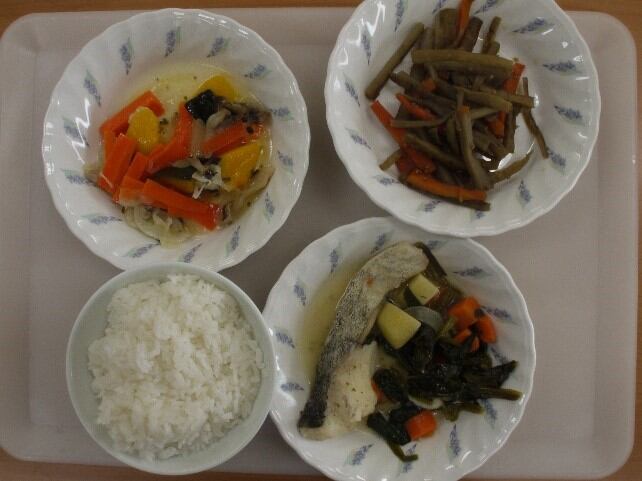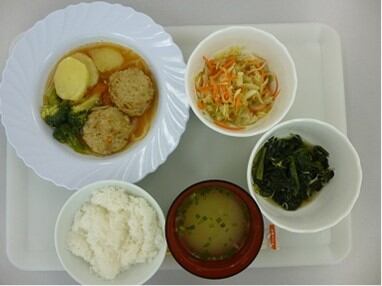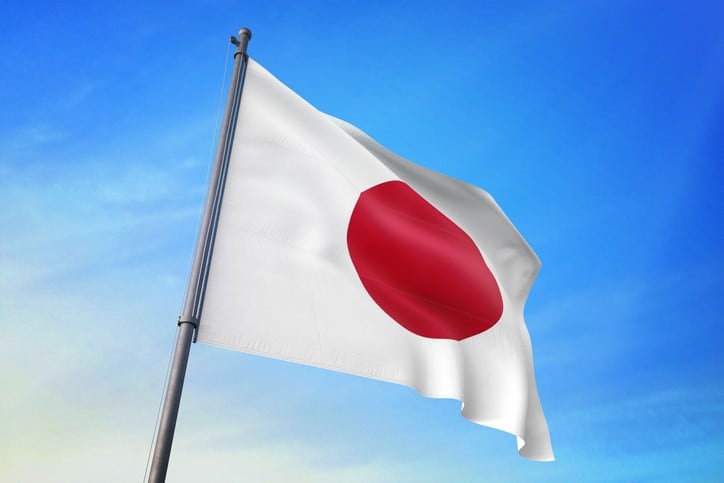Provided in the form of free L-glutamate, this finding may encourage consumers to make healthier choices without sacrificing palatability and lead to the development of food products made with umami.
Typically, people on sodium-restricted diets such as hypertensive patients have difficulty maintaining their diet due to palatability issues, which could lead to stress.
Salt improves taste and palatability of foods, but also help preserve foods and aid in fermentation, making its reduction a major challenge for the food industry.
The addition of umami substances such as L-glutamate, an amino acid can help maintain food palatability yet contribute to a lower sodium content.
Previous studies have showed improvement in mood state, concentration and decreased oxidative stress markers when subjects consumed dried bonito broth, which is rich in umami substances.
For the general population, salt reduction efforts have been ongoing, with excessive sodium intake linked to the onset of many non-communicable diseases.
In Japan, the average salt intake was 10.1g/day in 2019, twice as much as the WHO recommendations of less than 5g per day, according to the Japanese National Nutrition and Health Survey.
Hence, umami substances could be used as an approach to enhance the taste and palatability of a sodium-restricted diet yet reduce psychological and physiological stress.
So researchers in Japan and Vietnam conducted a cross-over, randomised, single-blind, placebo-controlled trial studying the effects of a high umami diet on stress levels in human subjects.
The findings published in the journal Foods.
Methodology
Researchers recruited 23 healthy female university students aged 18 to 35 years old in Japan.
They were split into two groups, the control group was assigned a sodium-restricted diet without an umami substance, while the test group was given a sodium-restricted diet with an umami substance.
Umami added is in the form of free L-glutamate.
Prior to the intervention, all participants were assigned a 4,000mg sodium diet for five days as baseline. They then went into their respective diets for another 10 days, totalling 15 days for the whole experiment.
The baseline diet contained 4612 ±177 mg/d of sodium, the sodium-restricted diet of the control group had 1993 ± 235 mg/d and the test group had 2048 ± 250 mg/d of sodium.
Researchers provided participants with breakfast, lunch, dinner, snacks, and beverages.
An example of lunch is sautéed white fish, burdock kinpira, carrots and kabocha salad and rice.

Example of dinner is stewed hamburg, coleslaw salad, boiled spinach with soy sauce, rice and miso soup.

A questionnaire (Profile of Mood States) was administered to evaluate mood state.
Saliva samples were collected before breakfast at days 1, 5, 8, 11, 13 and 16 to measure chromogranin-A (CgA pmol/mg protein), a stress marker.
Less stress
Salivary CgA (pmol/mg protein) changes more rapidly and more sensitively to psychological stressors than salivary cortisol does, and is a non-invasive method.
In this study, it is calculated as a percentage of change from baseline to the intervention phase.
Results showed that the stress level in the group with the umami substance was significantly lower (p = 0.013) than the group without the umami substance after day 6.
This suggest that umami substances might help to ameliorate stress during a sodium-reduced diet, especially in the initial phase.
Second author and researcher at Ajinomoto Food Product Division, Dr Andrea Wakita told FoodNavigator-Asia: “I think this is the first time that we have examined the effect of umami on stress caused by reduced food satisfaction due to salt reduction, using physiological indicators other than subjective evaluation.”
“Although this study is a preliminary study, this evidence scientifically supports that the provision of low-salt food products and menus using umami will lead to a sustainable healthy eating through salt reduction for consumers.”
As part of its medium-term management plan 2021-2025, Ajinomoto Group launched the Smart Salt Project to educate consumers as well as develop reduced salt products such as umami seasonings and umami soup stock.
Recommendations
Even though this study was conducted on healthy university students, Wakita said the findings would be applicable to other population groups.
“I think it can help improve food satisfaction for people who need salt restriction. A Juntendo University study reported an increase in eating rates among inpatients in the psychiatric ward who were given umami in their meals which were already lower in salt than usual.”
Researchers also recommended doing a study on hypertensive patients who seem to have a higher salt craving when receiving a sodium-reduced diet than healthy individuals without sodium restrictions.
Because this study was conducted on Japanese female studies, they advised further studies on whether Japanese food rich in umami sources are applicable to the Western food culture.
One of the researchers in this paper, Dr Vu Thi Thu Hien from the National Institute of Health and Nutrition of Vietnam is conducting a study in Vietnam on the benefits of using seasonings rich in umami for salt reduction in a hypertension group.
Source: Foods
https://doi.org/10.3390/foods10081739
“Stress Condition on a Restricted Sodium Diet Using Umami Substance (L-Glutamate) in a Pilot Randomized Cross-Over Study”
Authors: Tamami Iwamoto, Andrea Wakita, et al.




